This post contains affiliate links.
Welcome to the exciting world of backyard chicken keeping! Whether you are a beginner eager to start your flock or an experienced owner looking to brush up on the basics, this guide covers all the essentials. From selecting the right breeds, understanding their care needs, to tips on feeding and health management, I will help you set up a thriving backyard coop. Get ready to enjoy the pleasures and benefits of raising your own chickens. Let us embark on this rewarding journey together!
Introduction to Raising Backyard Chickens
Welcome to the delightful world of raising backyard chickens! Whether you are a seasoned farmer or a curious greenhorn, raising chickens in your backyard offers a uniquely rewarding experience. This introduction aims to cover the basics needed to embark on this journey.
Starting with the essentials, raising chickens at home allows you to embrace a more sustainable lifestyle, provide fresh eggs and even meat, while contributing to your garden’s ecosystem. By raising chickens, you will also engage in daily activities that connect you to the cycles of nature right in your backyard.
This article is designed to help to understand the how-to’s of keeping chickens and the joyful benefits it brings. I will uncover to you the insights on space requirements when raising chickens in your backyard, the types of chickens best suited for your climate, and most importantly, the profound satisfaction derived from being a part of their day-to-day growth and wellness.
Whether your backyard space is large or small, this guide provides all the necessary knowledge and tools to start and maintain a flourishing chicken coop, enriching both your garden and your lifestyle.
Top 10 Basic Things To Know About Backyard Chicken Keeping
- Local Regulations: Check with your city or town regarding any laws or ordinances that may restrict or regulate backyard chicken keeping.
- Coop Requirements: Ensure your chickens have a safe, comfortable coop that protects them from predators and severe weather conditions.
- Space Needs: Chickens need sufficient space to roam and forage. A minimum of 8-10 square feet per chicken is recommended in the run.
- Feeding: Provide a balanced diet consisting of commercial chicken feed along with nutritious kitchen scraps and occasional treats.
- Water: Fresh, clean water must be available at all times to keep your chickens hydrated and healthy.
- Health Care: Regularly check for signs of illness or distress. Learn basic chicken health care and establish a relationship with a vet who treats poultry.
- Predator Protection: Secure your coop and run from common predators such as raccoons, foxes, and hawks.
- Egg Collection: Collect eggs daily to keep them clean and to reduce the chances of your chickens starting to eat their own eggs.
- Cleaning: Clean the coop and change bedding regularly to maintain hygiene and control odors and pests.
- Social Needs: Chickens are social animals and prefer to be in groups. Consider keeping several chickens rather than just one.
Read my other related articles:
- Deciding If Backyard Chickens Are Right for You
- Understanding Local Regulations for Keeping Chickens
- The Initial Costs and Setup for a Backyard Chicken Coop
- Daily and Weekly Care Routines for Healthy Backyard Chickens
- What to Expect from Your Flock Of Backyard Chickens
- Common Myths About Keeping Chickens Debunked
- How Chickens Contribute to a Balanced Ecosystem at Home
Why You Should Consider Keeping Chickens in Your Garden
The delight of keeping and raising backyard chickens in your garden is beneficial. The idea of keeping chickens may seem difficult at first, however the benefits are profound. Chickens provide a sustainable source of fresh eggs and they also contribute significantly to the garden’s health. By keeping chickens, you engage in a natural, eco-friendly cycle where chickens feed on pests and weeds, reducing your need for chemical interventions.
Moreover, those looking to enhance their garden’s aesthetics will find that chickens add a charming element. The mere act of watching these birds is therapeutic, turning your garden into a serene retreat. Furthermore, as you continue keeping chickens, they will contribute nutrient-rich manure, which improves soil quality. Such enrichment is invaluable, especially if you are considering organic gardening.
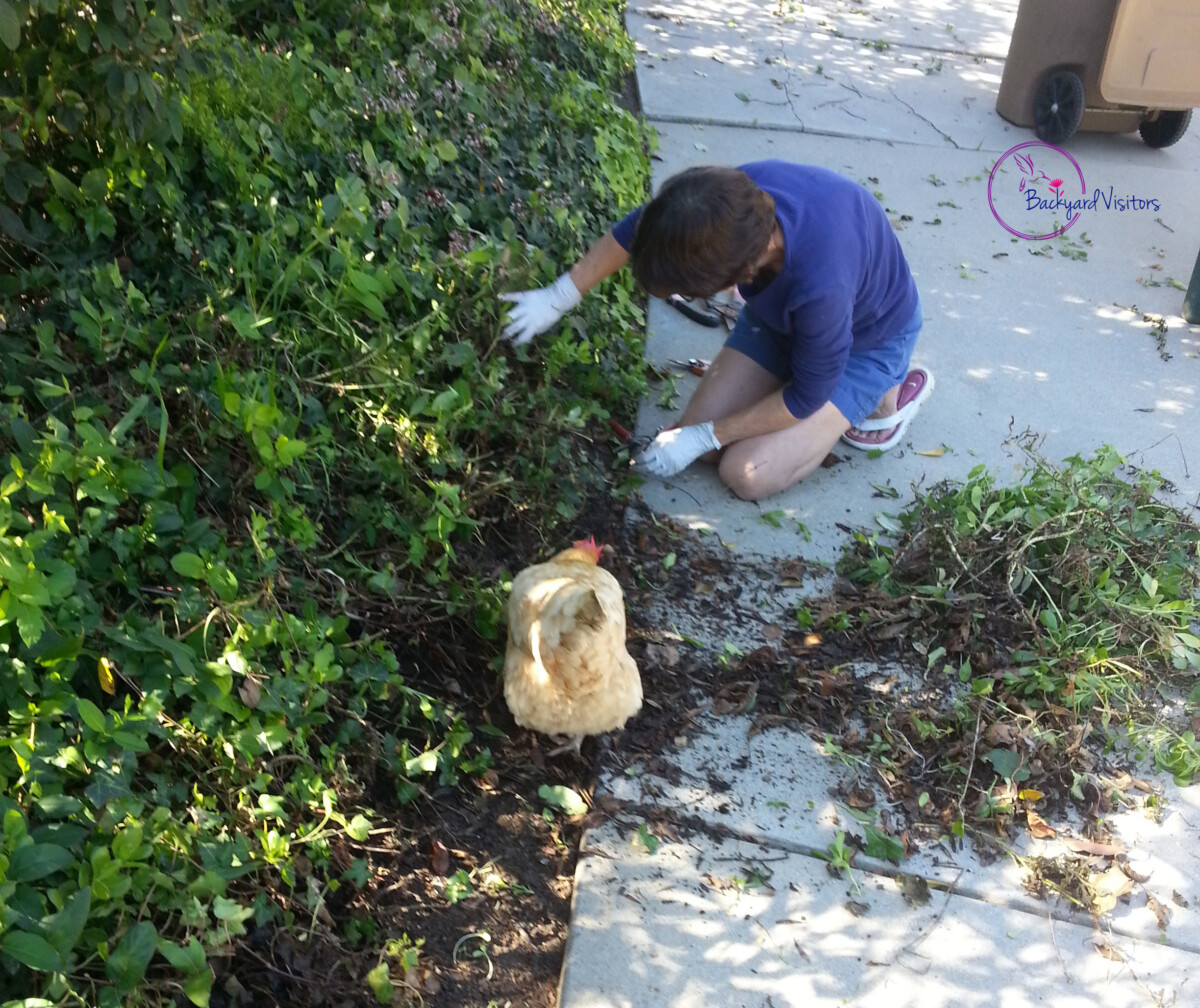
as mom cleans up the driveway edge.
Keeping chickens is a step toward self-sufficiency as it decreases your dependency on grocery store eggs. In your own garden, chickens lead happier lives, than the commercial production of eggs and you partake in more humane, ethical food production. As you consider expanding your knowledge in keeping chickens, remember that each step furthers your journey toward a rewarding, sustainable lifestyle right in your garden.
Planning Your Chicken Coop
After discussing the introduction to raising backyard chickens, it is time to talk about planning your chicken coop. A well-thought-out chicken coop serves as the bedrock of your backyard flock’s comfort and safety.
Decide for either a DIY chicken coop construction if you have the time and skills to create an innovative design or to save time and space review and purchase a pre-fabricated chicken coop that works best for your backyard situation. When planning your chicken coop, consider the size first.
I recommend 5 square feet per chicken inside the coop and about 10 square feet per chicken in the outdoor run. This space ensures they have enough room to move, sleep, and feed without overcrowding.
Some backyard chicken enthusiasts say a chicken coop requires 3-4 square feet per chicken. While that may be true for Bantam chickens such as Japanese Silkies, I recommend 5 square feet per chicken for regular sized hens.
Ensure your chicken coop is predator-proof with sturdy walls and a secure roof. The coop must be designed to keep out wild animals and protect your chickens from potential threats.
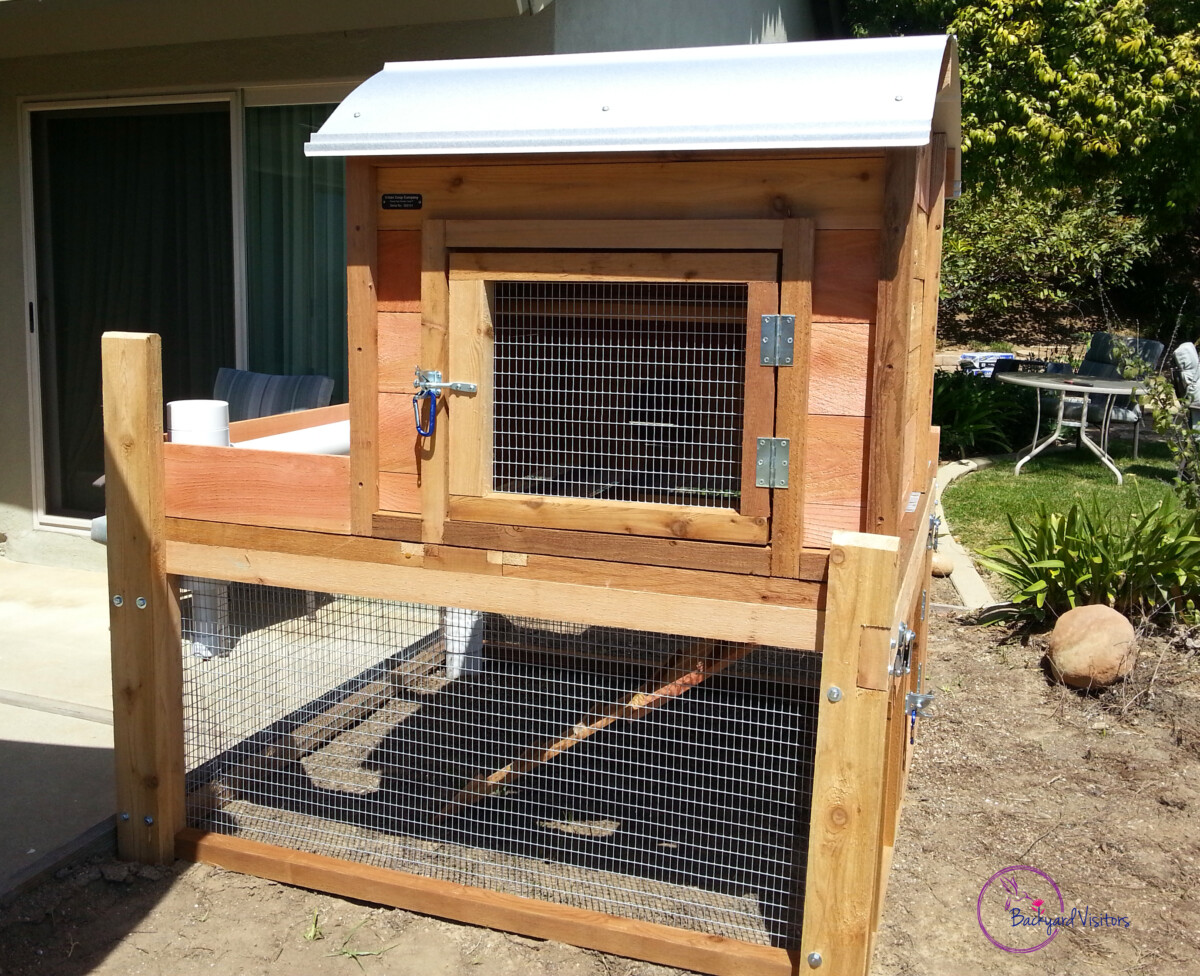
My chicken coop is placed on a concrete slab to prevent any predators from digging under the coop to access my chickens. The coop is protected with 16 gauge galvanized hardware cloth to prevent predators from attempting to claw or chew through the wire. The doors are locked at night using a carabiner that is possum proof. The ladder inside the chicken coop under the roosting bars is lifted with the pull of a rope from the outside and secures the chickens safely for the night.
Good ventilation is crucial to keep the air fresh and prevent respiratory issues but avoids drafts directly on the birds. Having easy access is essential for cleaning and gathering eggs; therefore, build your coop with convenience in mind.
Include necessary features such as nesting boxes where each hen can lay eggs in peace. Also include roosting poles for sleeping. Your chicken coop is a shelter and home for your chickens to feel safe and comfortable. As you develop your backyard chicken plans, remember that the coop is central to your flock’s overall health and happiness. This simple structure greatly enriches your yard and garden, making your chicken-raising journey a joy.
Top 11 Essential Ways To Plan Your Chicken Coop
- Location: Choose a high, well-drained area for the coop to prevent flooding and puddling, which reduces odors and illnesses.
- Space: Ensure adequate space per chicken (at least 5 square feet inside, 10 square feet outside) to prevent stress and aggression.
- Ventilation: Good ventilation helps control moisture and ammonia levels, providing a healthier environment for the birds.
- Predator Protection: Reinforce the coop and yard with hardware cloth and sturdy locks to protect chickens from predators such as raccoons and foxes.
- Lighting: Incorporate natural light sources or artificial lighting to regulate laying patterns, especially during shorter days.
- Nesting Boxes: Provide 1 nesting box for every 3-5 hens to give them a private, comfortable place to lay eggs.
- Roosting Bars: Install roosting bars higher than the nesting boxes to allow chickens to perch, which is their natural behavior.
- Easy Cleaning: Design the coop with features such as removable trays or droppings boards for easy waste removal and cleaning.
- Feed and Water Accessibility: Ensure feed and water containers are easily accessible but not on the ground to prevent contamination.
- Run Area: Provide a secure, spacious run area with protection from both aerial and ground predators to allow safe outdoor access.
- Insulation: Insulate the coop to protect chickens from extreme weather conditions, keeping them warm in winter and cool in summer.
Essential Features Every Chicken Coop Needs
When planning your chicken coop, understand that chickens need a healthy and safe environment. Every coop must provide shelter, protection, and enough space to allow the chickens to live stress-free.
Check the structural integrity of your coop to ensure it will withstand the elements and keep predators at bay. Always use sturdy materials and secure latching mechanisms to protect your flock.
Inside the coop, ventilation is a must. Chickens require fresh air to stay healthy, but make sure the airflow does not cause drafts during colder weather. The coop should also be easy to clean. Consider a design that allows easy removal of bedding and waste.
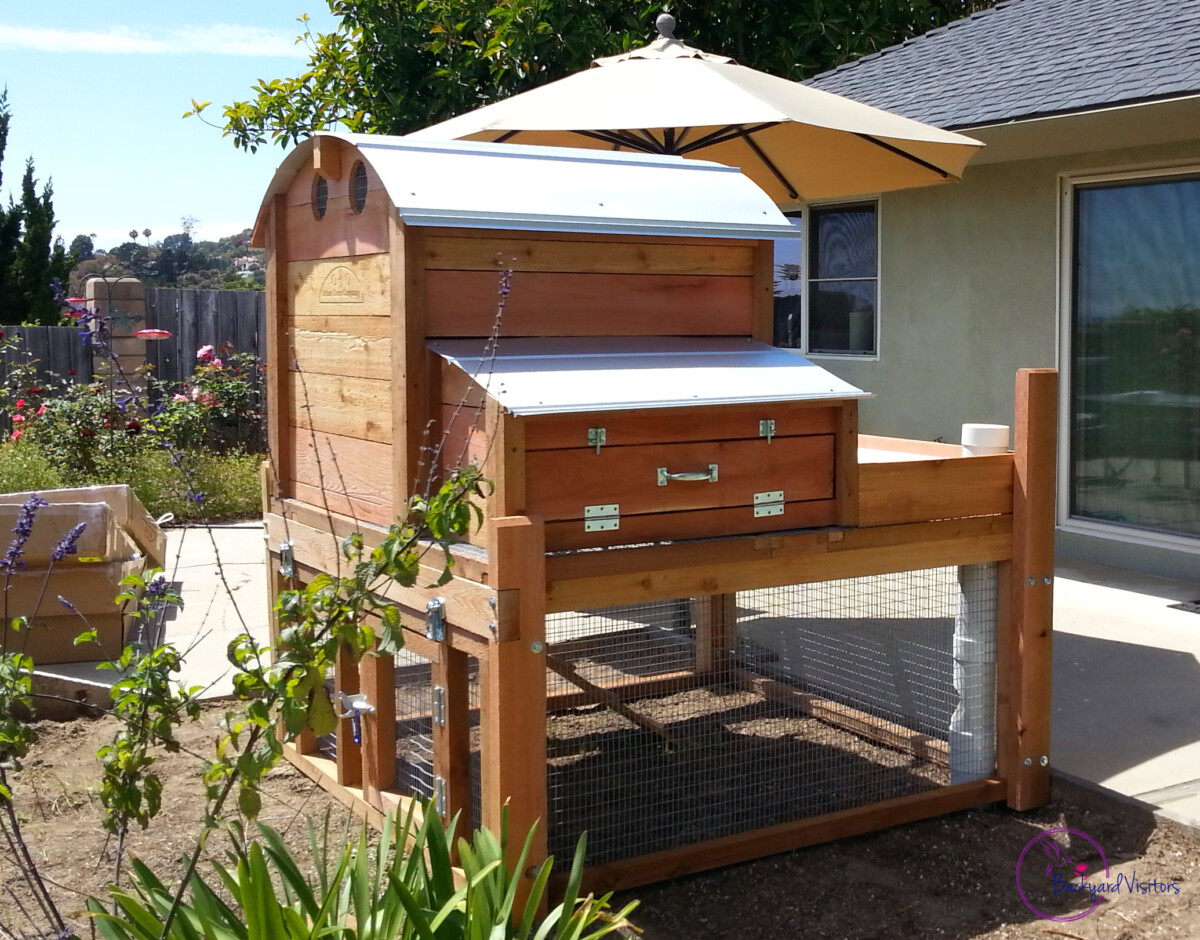
For my backyard situation, my compactable chicken coop helped me save space in my backyard, but one drawback is that it has a small, low-to-the-ground human access area that makes it difficult for someone to clean out the coop. To make cleaning the coop much easier, I would have chosen a walk-in coop design with more room over a compact design.
Adequate nesting boxes and perches are essential, as chickens need private, comfortable spots for laying eggs and resting. Usually, one nesting box for every three to five hens is sufficient but if you are able to provide more space, it is welcomed.
Do not forget to check regularly for parasites and other issues that may affect the health of your chickens.
Lastly, always ensure your coop has provisions for feeding and fresh water that are easily accessible to keep your chickens hydrated and well-fed. By integrating these essential features, you will create a thriving environment for your backyard chickens.
Top 7 Necessary Features For A Chicken Coop
- Security from Predators: The coop must be secure from predators such as raccoons, foxes, and hawks. This involves solid construction with no gaps, sturdy locks, and predator-proof latches. Use hardware cloth instead of chicken wire (which is too flimsy).
- Proper Ventilation: Good air circulation is crucial to keep the coop free from dampness and to reduce the build-up of ammonia from droppings. Proper ventilation helps prevent respiratory issues in chickens but should be designed to avoid drafts directly on the birds during colder weather.
- Adequate Space: Chickens need enough room to move, sleep, and engage in natural behaviors. Overcrowded conditions lead to stress, pecking, and the spread of disease. Generally, 3-5 square feet per chicken inside the coop and 10 square feet per chicken in an outside run are recommended.
- Roosting Bars: Chickens naturally perch on branches at night to avoid predators. Providing roosting bars satisfies this natural behavior. Place them at varying heights and have enough space to prevent overcrowding.
- Nesting Boxes: Nesting boxes provide a secure and comfortable area for hens to lay their eggs. One box for every three to five hens is sufficient. Fill them with soft bedding, such as wood or pine shavings.
- Easy to Clean: Removable trays for droppings, surfaces that are easy to wipe down, and materials that do not harbor parasites are important for maintaining hygiene and overall health.
- Protection from the Elements: The coop must provide shelter from extreme temperatures, wind, rain, and snow. Insulation is necessary depending on the climate and the positioning of the coop will avoid areas prone to flooding or excessive wind.
Understanding the Basics of Chicken Care
If you are just getting started with raising backyard chickens, it is crucial to understand the basic aspects of chicken care. Know the essentials to make the difference between a thriving flock and a floundering one.
Chickens need a safe and comfortable coop. A good home protects your chickens from the elements and predators. Chickens require a balanced diet to stay healthy. Provide plenty of clean water daily and keep their living area clean to ward off diseases.
Another vital part of chicken care involves regular health checks. Watch for signs of illness or distress to catch issues before they become serious. Do not forget about the mental and physical well-being of your chickens. They love to peck, forage, and have enough space to roam which are all activities that keep them happy and productive.
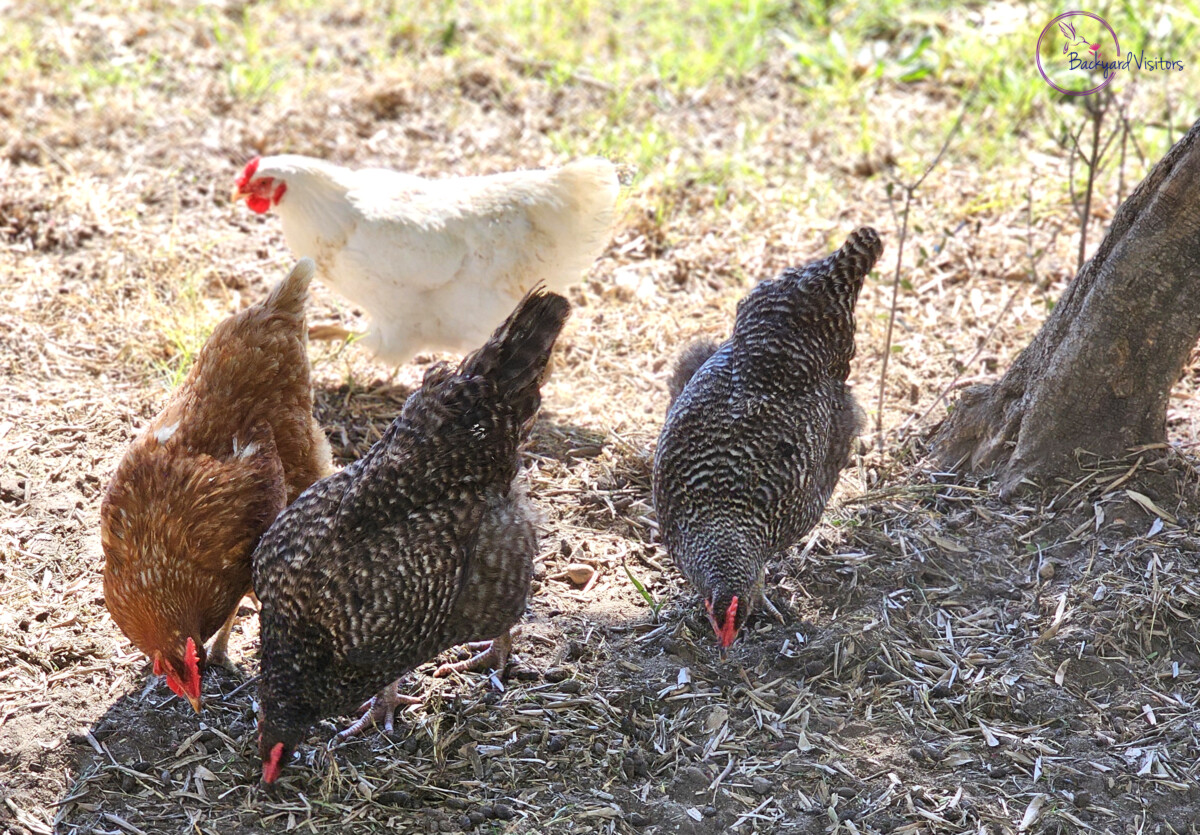
Understanding these basics will give you a happier flock and will also enrich your experience as a chicken keeper. As you continue on this journey aime to further enhance your chickens’ quality of life. Gather your tools and enthusiasm, and enjoy every step of your chicken-raising adventure!
What You Need to Know About Chicken Health and Nutrition
Diving deeper into the art of raising backyard chickens, it is critical to prioritize health and nutrition, elements needed to ensure that your flock thrives. Understand what chickens need in their diet to prevent various health issues and optimize their growth and egg production.
Chickens require a balanced diet rich in proteins, vitamins, and minerals. It is essential to know the right mix of feed, that includes grains, seeds, and kitchen scraps, and the impact on their health. Mealworms are another source of protein that chickens love to eat.

All I have to do is shake the container, and they come running!
It is important to understand the common health concerns that plague chickens, such as parasites, respiratory diseases, and more. Regular check-ups and knowing when to seek veterinary help are crucial.
Chickens also need ample fresh water daily, which supports their hydration. By knowing these key aspects of chicken care, you will prevent many common ailments.
Well-nourished and healthy chickens provide an increase in egg production of a higher quality. As you invest in learning about their specific needs and cater to them, you will foster a pleasant and productive environment for every member of your backyard flock.
Top 13 Common Health Concerns For Backyard Chickens And What Balanced Diet Is Needed
- Respiratory Infections:
Ensure a diet rich in vitamins A and E, and selenium to support and boost immune health. - Parasites (mites, lice, worms):
Provide a diet with adequate protein supplemented with garlic and diatomaceous earth to help deter parasites. - Fatty Liver Hemorrhagic Syndrome:
Maintain a balanced diet with controlled fat intake and adequate methionine to support liver health. - Marek’s Disease:
Is a highly contagious viral disease that affects chickens. Maintain a balanced diet including antioxidants (Vitamins E and C) to promote immune system health. - Coccidiosis:
A common parasitic disease affecting poultry. Offer a diet with ample fiber and probiotics to support gut health and durability. Add oregano oil to the chicken feed or water as it has natural anti-coccidial properties. Use a formulation that is appropriate for poultry and follow recommended dosages to avoid any potential toxicity even though it is natural. - Egg Binding:
Provide calcium-rich diets supplemented with vitamin D3 and magnesium to ensure strong bones and proper egg production. Access to calcium supplements such as oyster shells to strengthen eggshells. - Avian Influenza:
Often called bird flu, it is highly contagious among birds. High-quality protein, balanced nutrients, and clean water are essential to maintain health and resistance to disease. - Cannibalism and Pecking:
Ensure adequate protein, balanced amino acids, and constant access to feed to minimize stress and aggression. - Heat Stress:
Add electrolytes and vitamins to the drinking water, along with offering a diet lower in protein during hot weather. - Nutritional Deficiencies:
Feed a balanced diet of grains, seeds, proteins, and greens. Supplement with a commercial feed that meets all nutritional needs. Ensure availability of grit for digestion. - Fowl Cholera – Is an infectious bacterial disease that spreads quickly. Incorporate probiotics and clean, fresh water to support digestive health and hydration.
- Obesity – Control calorie intake and ensure the diet is not too heavy in carbohydrates; balance with greens and proteins.
- Bumblefoot – Is an infection in a chicken’s foot characterized by swelling, redness and black scabs. Keep a diet low in fat and high in Omega-3 fatty acids to help reduce inflammation and support skin health.
The Benefits of Raising Chickens
One of the undeniable benefits of raising chickens in your own backyard is that it provides a close link to nature. Starting your mornings with a backyard bustling and the presence of chickens, you will quickly realize the joy they bring.
Not only do chickens offer a source of fresh eggs; which are far superior in taste and nutrition than store-bought ones; they also contribute to a healthier garden. As they peck and scratch at the ground, chickens help aerate the soil and control pests and weeds, reducing the need for chemical treatments.
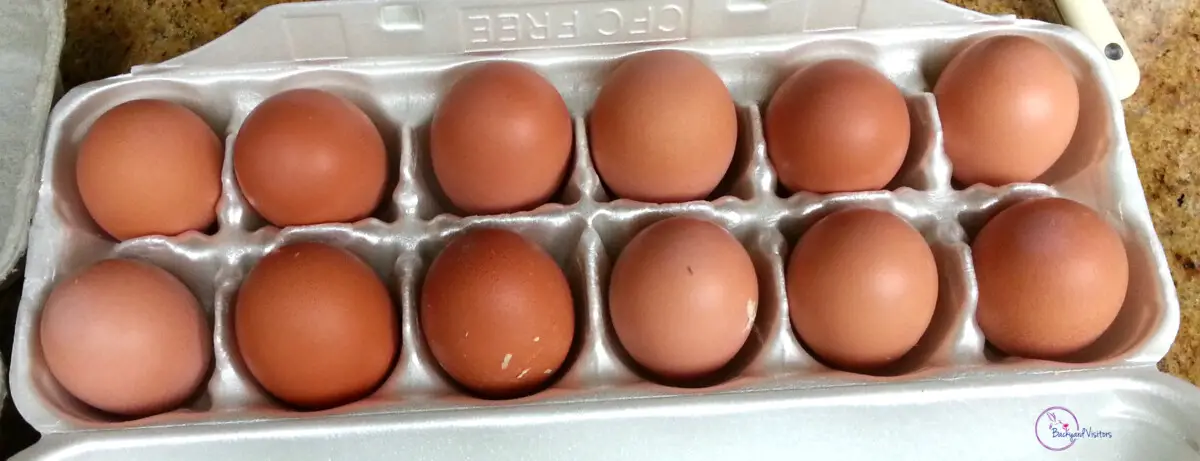
Chickens are amazingly low-maintenance pets that teach responsibility and lend charm to your life. Raising chickens, taps into sustainability. Their waste is compostable, turning kitchen scraps into nutrient-rich fertilizer that benefits your plants immensely.
Additionally, engaging with chickens is therapeutic, offering a sense of calm and connection that is often lost in the hustle of modern life. Whether you are pursuing self-sufficiency, aiming to reduce your carbon footprint, or simply cherish the company of these feathered friends, raising chickens enriches your life in countless ways.
The benefits of raising chickens also create educational opportunities for children and adults alike, making the relationship with these birds both beneficial and an enriching educational experience.
How Keeping Chickens Can Enrich Your Yard and Garden
Many backyard enthusiasts find that these feathered friends bring fresh eggs along with enriching your yard and garden. By keeping chickens, you are inviting natural pest control into your space, as they forage for insects and help keep bug populations in check. They keep your garden healthy while the chickens are also happy. Their constant scratching and pecking aerates the soil, making it richer and more fertile for whatever you choose to plant.
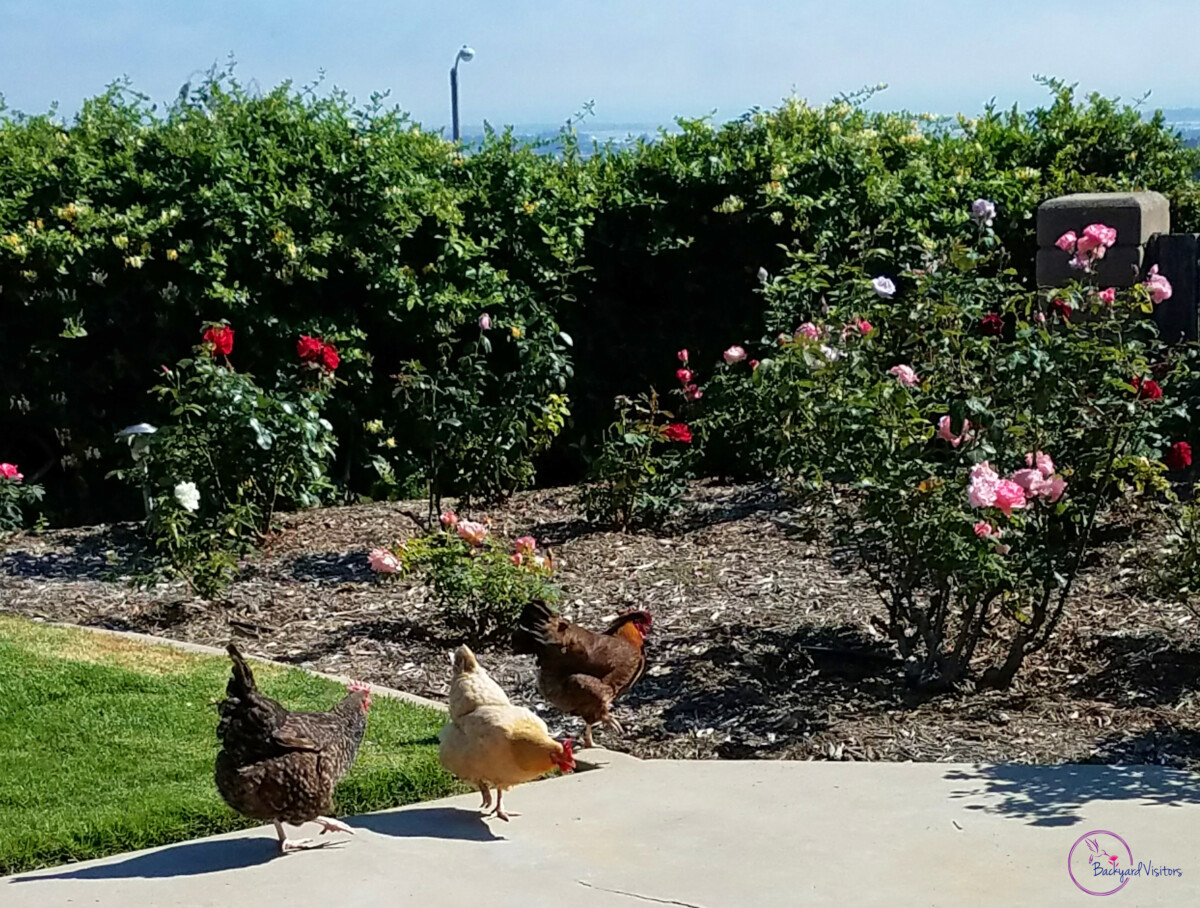
Chickens are a delightful addition to any yard, bringing vibrant life and energy. The benefits of keeping chickens extend well into your home garden. By thoughtfully integrating the coop and roam areas with your garden design, you can leverage their natural behaviors to benefit your planting areas. Their droppings are high in nitrogen—a boon for plants that thrive on rich soil. These natural, on-going contributions turn raising chickens into a partnership wherein they provide essential support for a thriving garden ecosystem.
It is easy to see why keeping chickens has gained popularity among gardeners. Whether you are focused on sustainability or looking for a unique way to enhance your yard and garden, chickens offer practical benefits. The rewards of keeping a few chickens in your garden far outweigh the manageable challenges they present.
Choosing the Right Chickens for Your Backyard
Venturing into the world of backyard poultry, choosing the right chickens for your specific environment is crucial. Not all chickens are suited to every backyard, and making an informed decision will dramatically enhance both your experience and the well-being of your feathered friends.
Choosing the right chickens for your backyard depends on several factors including your climate, space available, what you want from your chickens (eggs, meat, or simply as pets), and how much time you can dedicate to their care. There are various breeds to consider, each with unique traits. Different chickens thrive under different conditions.
If you are mainly interested in egg production, consider breeds such as Leghorns, Rhode Island Reds, or Plymouth Rocks. These breeds are known for their high egg yield. Egg color and size vary by breed. For instance, Ameraucanas and Araucanas lay blue or green eggs, while Marans lay dark chocolate brown eggs.
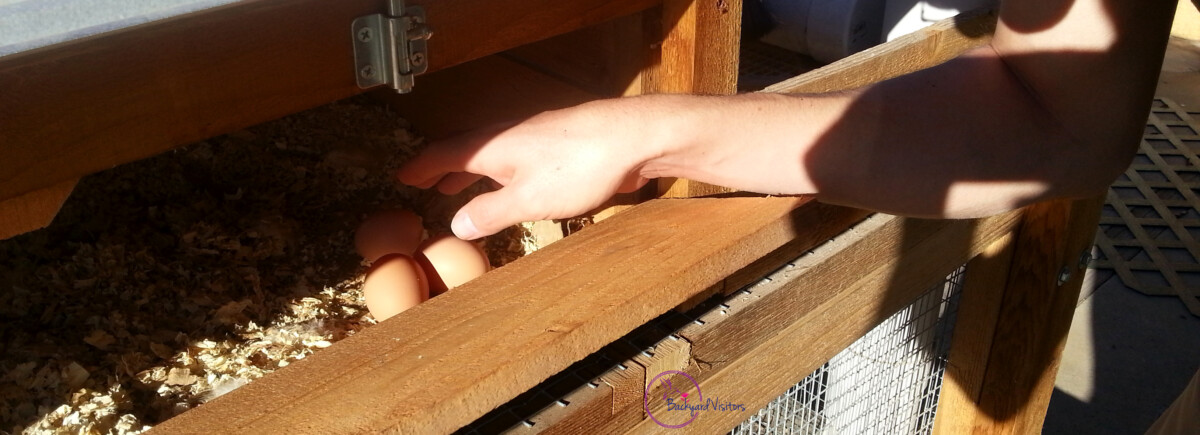
Notice the security latch above and the sturdy wire mesh below to keep predators out.
For meat production, breeds such as Cornish Cross or Jersey Giant are preferred due to their rapid growth and larger size. However, my backyard chickens are chosen for eggs, comradery, and as pets when they get older and stop laying.
Dual-purpose needs if you want chickens for both meat and eggs, breeds such as Sussex, Orpingtons, and Wyandottes are good choices.
Silkies and Polish chickens are less about productivity and more about personality and appearance, making them great pets or show chickens. Some breed temperaments are more docile and suitable for families with children, such as Cochins, Brahmas, and Buff Orpingtons.
Other factors to consider include climate adaptability, space requirements, and maintenance needs. Consider breeds that can adapt to your local climate. For example, thick-feathered breeds such as Chanteclers and Brahmas do well in colder climates, while lighter-feathered breeds such as Andalusians are better at handling the heat.
If space is limited, bantam breeds are a good choice as they are smaller and require less room than standard breeds. Larger breeds and those that are more active will need more space to roam and forage. More active or flighty breeds, such as Leghorns, may require more secure enclosures.
Some breeds require more maintenance than others. Breeds with elaborate feathering such as Silkies or breeds with large combs and wattles like Leghorns may need more care, especially in extreme weather conditions.
When selecting chickens, consider starting with a small number of birds to ensure you can manage their care effectively. Consulting with local chicken keepers or joining community groups provide valuable insights and support as you embark on your backyard chicken-keeping journey. The ultimate goal is a harmonious backyard setup where your chickens will thrive and contribute to a richer yard and garden ecosystem.
Differences Between Egg-Laying Hens and Other Poultry
Understanding the differences between egg-laying hens and other types of poultry is crucial for any aspiring backyard chicken owner. Egg-laying hens, as the name suggests, are primarily raised for their ability to produce eggs efficiently. These hens are often very consistent in their output, providing fresh eggs almost daily under the right conditions.
On the other hand, other poultry types, such as meat chickens or ornamental birds, serve different purposes. Meat chickens are bred for their rapid growth and are usually larger with a different dietary requirement than egg-laying hens.
When comparing hens to other poultry, temperament is another noteworthy consideration. Hens are calmer and easier to manage, which makes them ideal for a backyard setting. Other poultry, depending on the breed, may be more aggressive or require different living conditions to thrive. Moreover, the lifespan and overall health care needs vary distinctly between egg-laying hens and other poultry, influencing the daily upkeep and veterinary care they require.
For anyone looking into raising backyard chickens, it is beneficial to recognize these differences to choose the right type of bird for your specific needs and living situation. Whether it is for eggs, meat, or simply as a feathered friend, each has its own set of requirements and benefits that will enrich your chicken-raising experience.
Top 5 Egg-Laying Hen Breeds
- Leghorn
- Known for their prolific egg-laying ability.
- Can lay up to 280-320 white eggs per year.
- Active and hardy birds.
- Rhode Island Red
- Dual-purpose breed, excellent for both eggs and meat.
- Lays around 250-300 brown eggs per year.
- Hardy and adaptable to different climates.
- Sussex
- Another dual-purpose breed.
- Can lay about 250-280 light brown eggs per year.
- Calm and friendly disposition.
- Plymouth Rock
- Popular for their consistent egg production.
- Lays around 200-280 brown eggs per year.
- Hardy and easy to care for.
- Australorp
- Known for their exceptional egg-laying capacity.
- Can lay around 250-300 light brown eggs per year.
- Gentle and easy-going birds.
Top 5 Meat Chicken Breeds
- Cornish Cross
- The most popular meat chicken breed.
- Known for rapid growth and high meat yield.
- Ready for processing in 6-8 weeks.
- Broiler
- Specifically bred for meat production.
- Fast-growing with a high feed conversion ratio.
- Typically ready for processing in 6-8 weeks.
- Jersey Giant
- One of the largest chicken breeds.
- Slow-growing but produces a large amount of meat.
- Takes around 16-21 weeks to reach processing weight.
- Bresse
- Renowned for its high-quality, flavorful meat.
- Considered a gourmet breed.
- Takes around 16-20 weeks to mature.
- Freedom Ranger
- Known for their excellent foraging ability and rich flavor.
- Grows slower than the Cornish Cross, ready in about 9-11 weeks.
- Produces tender and flavorful meat.
Maintaining a Healthy Flock
Maintaining a healthy flock of chickens requires knowledge, patience, and a bit of TLC. To ensure that your chickens are flourishing means keeping a close eye on their health, environment, and diet.
The key to a vibrant flock lies in understanding the nuances of chicken care. First, provide them with a spacious coop that shields them from harsh weather and predators. A clean, dry, and well-ventilated environment reduces the risk of disease and keeps your chickens happy. Regular cleaning and maintenance are essential.
Maintaining a healthy flock with proper nutrition is pivotal. Chickens need a balanced diet rich in proteins, vitamins, and minerals. This nurtures their physical health and their egg-laying capabilities. Monitoring the health of your chickens is crucial; be vigilant for signs of illness such as lethargy, abnormal breathing, or changes in eating habits. Immediate action will prevent the spread of disease, ensuring the longevity and vigor of your flock.
Do not forget the importance of vaccinations and regular veterinary check-ups. By adhering to these practices, you actively contribute to maintaining a robust and healthy flock. With commitment and understanding, your backyard will be a sanctuary for these delightful creatures, offering you endless joy and natural bounty.
Regular Tasks to Keep Chickens Happy and Healthy
The art of raising backyard chickens and understanding the regular tasks necessary to keep your chickens happy and healthy is crucial. Daily, check their water supply to ensure it is accessible, clean and plentiful.
Feeding is another key task. Chickens require a balanced diet rich in nutrients.
Regularly cleaning the coop is vital to prevent disease and keep your chickens comfortable. It involves removing waste, refreshing bedding, and ensuring the space is dry and draft-free.
Daily egg collection is a task many backyard chicken owners look forward to and do it consistently to keep the hens from becoming broody.
Regular monitoring for signs of illness or distress is also necessary. Early detection makes a significant difference in outcomes. Additionally, it is important to let your chickens out into a secure yard or garden, as previously discussed, to peck, forage, and enjoy the sunlight, which is beneficial for their health and egg production.
Structured routines help reduce stress in chickens, making them more productive and easing their care on your part. With these tasks routinely attended to, your chickens will thrive, offering you a rewarding experience as detailed in our upcoming sections on addressing common chicken-keeping challenges.
Addressing Common Chicken Keeping Challenges
From planning your coop to understanding chicken care, addressing common chicken keeping challenges is a crucial step for anyone serious about poultry management. There are a range of issues that may come up from diseases to space limitations.
Prevention is always better than cure therefore, it is important to keep a vigilant eye on your flock’s health and ensure that their habitat is clean. Moreover, it is essential to address the social structure within your flock to prevent bullying and stress.
To ensure that your birds are comfortable and safe is as simple as adjusting their space or enhancing their diet. Keeping chickens content is the ultimate goal of any chicken raiser. Lastly, predators pose a significant threat, and effective strategies to protect your feathered friends will be covered in our upcoming sections about yard hazards. Let’s continue to explore more advanced techniques to enhance your chicken-raising experience!
How to Deal With Predators and Other Yard Hazards
It is critical to know how to handle potential predators and other yard risks. Predators will range from common suburban threats such as dogs and cats to wilder adversaries such as foxes, raccoons, and even hawks. The key is to fortify your chicken coop against these threats. Ensure that your coop includes secure fencing that digs deep into the ground to thwart digging predators, and has durable overhead netting to protect against aerial threats. Additionally, keep the yard tidy to reduce hiding spots for sneaky predators.
Addressing other hazards involves vigilance and regular maintenance. Remove toxic plants and secure any chemicals or tools that could harm your chickens. Always keep a clean and orderly environment to minimize the risk of injury and to help maintain the health of your chickens.
Consider investing in motion-activated lights or even wildlife cameras to monitor any suspicious activity around your coop during the night. Information gained from such tools help you better understand and deal with the specific predators that may be looming around your property. By staying proactive, you will ensure that your chickens thrive safely despite the presence of predators and other yard hazards.
Top 11 Backyard Chicken Predators And What Ways To Keep Chickens Safe
- Raccoons: Secure coop latches with raccoon-proof locks and ensure there are no gaps larger than 1 inch.
- Foxes: Bury your fence at least 12 inches into the ground to prevent digging or place your coop on a concrete slab.
- Hawks: Use overhead netting or cover to protect chickens from aerial attacks.
- Owls: Ensure the coop is completely enclosed with strong wire mesh, especially at night.
- Cats (Domestic and Feral): Install sturdy fencing and keep the coop enclosed.
- Dogs: Train your dogs to accept chickens or keep them separate using secure fencing.
- Weasels: Use hardware cloth instead of chicken wire, as weasels can slip through small openings.
- Snakes: Keep grass mowed and eliminate rodent attractants; small chicks may be at risk.
- Skunks: Secure the base of your coop to prevent skunks from digging underneath.
- Bears: Use electric fencing and keep feed in bear-proof containers.
- Opossums: Ensure the coop closes securely each night and patch any holes promptly.
Expanding Your Knowledge and Flock
As you delve deeper into the world of raising backyard chickens, it is essential to focus on expanding both your knowledge and flock. After mastering the basics, you will find there is much more to learn about the nuances of chicken care.
Develop a comprehensive understanding to enhance your capabilities and to ensure that your chickens lead self fulfilling lives. When you expand your flock, you will discover the dynamic nature and different needs of various breeds, furthering your connection to these delightful creatures.
Expanding your flock entails adding numbers and engaging with a community of fellow enthusiasts who can share insights and offer support. There is always something new to learn, and luckily, many resources are available to help you.
Whether it is through online communities, books, or local clubs, the knowledge you gain will empower you to tackle any challenges that come with a growing flock. Every piece of information helps you make better decisions for your feathered friends and enriches the overall experience of keeping chickens. Your dedication reflects in the health and vibrancy of your flock, showcasing the rewards of continually expanding your knowledge and providing the best care for your chickens.
Ways to Keep Your Flock Happy and Well Through Advanced Techniques
After mastering the basics from my previous sections on raising backyard chickens, you are likely looking for ways to elevate your skills and ensure your flock is surviving and thriving. Advanced techniques play an essential role in keeping your birds happy and well. It is crucial to build on what you have already learned and maximize your flock’s health and productivity.
One such technique is implementing sophisticated foraging systems which engage your chickens’ natural behaviors and improve their physical and mental health. Enhanced dietary plans that include varied, nutrient-rich treats, or perhaps cultivating a garden specifically for your chickens, will contribute significantly to their wellness. Regular health checks and employing proactive measures against potential diseases are all part of these advanced steps along with refined coop modifications to keep them safe from predators.
The goal is to keep your chickens content, secure, and producing efficiently. Each technique you incorporate builds on the foundations previously set, collectively contributing to a flourishing backyard venture. Moving forward, keep these insights in mind, and do not hesitate to connect with other chicken raisers for shared knowledge and experiences!
Connect With Other Chicken Raisers
As you journey into the fascinating world of raising backyard chickens, do not underestimate the importance of getting to connect with other chicken raisers. Whether you are troubleshooting a health issue, seeking advice on the best feeds, or simply sharing the joys of your latest hatch, the community of fellow poultry enthusiasts will prove invaluable.
Chicken care, while rewarding, comes with its challenges, from predator management to understanding nutrition specifics, and connecting with others who share your interest will make all the difference.
Forums, local farming groups, and online communities dedicated to chicken raisers provide endless opportunities for learning and support.
By engaging with other raisers, you will gain access to a wealth of practical knowledge and also contribute to a vibrant network of backyard farmers.
Sharing your experiences and tips helps foster a supportive environment where all members, new and seasoned, will benefit. Do not hesitate to reach out, ask questions, and participate in discussions. The collective wisdom of the chicken-keeping community is just a conversation away, ready to help you and your chickens thrive in your backyard setup.
Learn From the Community and Share Your Own Experiences
Embarking on your journey with backyard chickens is an adventure that benefits immensely from engaging with a vibrant community of fellow poultry enthusiasts. As you learn the nuances of chicken care, from crafting the perfect coop to meeting your birds’ nutritional needs, it is invaluable to share your experiences and draw on the collective wisdom of others who are just as passionate about their feathered friends.
Not only does this community provide support and insights that books and articles may not cover, but also offers the unique opportunity to contribute your own stories and solutions, enhancing the knowledge pool.
As you discuss the best strategies to maintain a healthy flock and explore advanced techniques to keep your chickens happy, you will discover that each exchange enriches your understanding and approach.
Whether you are troubleshooting a health issue or choosing the right breed for your climate, the chance to both teach and learn is abundantly available. This aspect of chicken-keeping is about the birds and about the people you meet and the bonds you form.
Dive into this lively exchange of wisdom, where the stories of your chickens become an integral part of a larger narrative, forging connections that strengthen your role within this featured community.
Check out my other posts on Backyard Chickens
Frequently Asked Questions
Q1: What are the basic space requirements for a chicken coop?
A1: A chicken coop needs approximately 3 to 5 square feet per chicken inside the coop and about 10 square feet per chicken in the outdoor run.
Q2: How do I ensure my chicken coop is predator-proof?
A2: Ensure that the coop has sturdy walls, a secure roof, and a strong latching mechanism. Consider additional security measures such as burying your fencing underground to deter digging predators and using overhead netting to protect against aerial threats.
Q3: What should I look for when selecting the right breed of chickens for my backyard?
A3: Consider your climate, the space available, and your goals (e.g., egg production, meat, or pets). Some breeds require more space, while others are better suited for colder climates. Consult local resources or experienced chicken keepers for recommendations tailored to your specific situation. Feed stores are a good resource since they are local and often know the best breeds suited in the community.
Q4: How can keeping chickens benefit my garden?
A4: Chickens contribute to garden health by aerating the soil, and naturally controlling pests and weeds. They also provide nutrient-rich manure that enhances soil quality—an especially valuable aspect for organic gardening.
Q5: What are the essential aspects of chicken care that every beginner should know?
A5: Key aspects include providing a predator-proof and weather-appropriate coop, a nutritious and balanced diet, regular health checks, and ensuring adequate water and space for the chickens to exhibit natural behaviors such as foraging and dust bathing.
These FAQs aim to equip new chicken keepers with the knowledge needed to start and maintain a healthy and productive backyard flock.
Happy Backyard Chicken Keeping!
Backyard Visitors is a participant in the Amazon Services LLC Associates Program, an affiliate advertising program designed to provide a means for sites to earn advertising fees by advertising and linking to Amazon.com. We also participate in other affiliate programs which compensate us for referring traffic.

